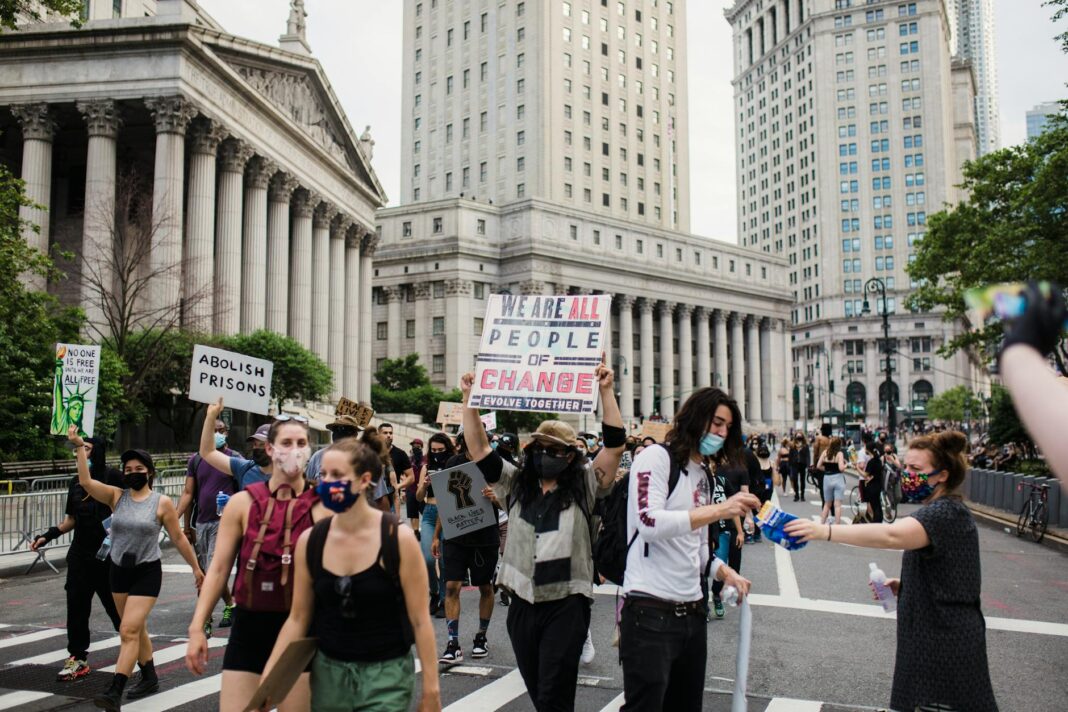Political Violence Escalates After Kirk’s Assassination: An Expert’s Vie
w
The recent assassination of conservative advocate Charlie Kirk has sent shockwaves through the political landscape, raising alarms about the disturbing trend of increasing political violence in the United States. In the wake of this tragic event, experts on extremism are speaking out, warning that the feelings of disenfranchisement and anger among citizens are leading to a dangerous escalation in hostility and, ultimately, violence.
Understanding the Context of Political Violenc
e
Political violence is not a new phenomenon in American history, but the current climate is particularly charged. With social media amplifying divisive rhetoric and political polarization at an all-time high, discussions surrounding political beliefs can quickly devolve into hostility. The assassination of a high-profile figure like Kirk can act as a catalyst, igniting already simmering tensions among certain groups. When individuals believe their voices are being ignored or their values are under siege, they may resort to extreme actions as a way to express their frustration and assert their identity.
Factors Contributing to the Crisi
s
Several key factors contribute to the rise of political violence today. Firstly, the deepening political polarization has created an environment where dialogue seems impossible. People are increasingly retreating into echo chambers, reinforcing their beliefs without considering opposing viewpoints. This divide not only fosters animosity but also legitimizes the use of violence as a means of achieving political ends. The more individuals see those with differing views as enemies, the more likely they are to justify extreme actions against them.
Secondly, social media plays a significant role in amplifying this tension. Platforms that were initially designed for communication and community-building have morphed into breeding grounds for misinformation and incitement. As individuals share and consume content that fuels their grievances, the potential for real-world violence escalates. The anonymity of online interactions can embolden individuals who might otherwise refrain from violent actions in face-to-face settings. The viral nature of social media allows incendiary messages to spread rapidly, creating a sense of urgency and outrage that can lead to impulsive, violent actions.
The Expert’s Insight
s
In the aftermath of Kirk’s assassination, the extremism expert emphasizes the importance of addressing the underlying grievances that lead to such violence. Acknowledging the feelings of disenfranchisement among certain groups is crucial for de-escalating tensions. When citizens feel that their concerns are valid and worthy of attention, the drive towards violence may diminish. It’s about creating an environment where open dialogue is encouraged, rather than one where anger festers in silence. This requires a commitment from political leaders to engage with their constituents in meaningful ways, addressing their concerns rather than dismissing them as extreme or unfounded.
Moreover, the expert points out that community engagement is essential. Local organizations and leaders must work diligently to create safe spaces for discussion, where individuals of varying beliefs can come together to share their perspectives. These forums can serve as a powerful antidote to the isolation and frustration that often lead to violence. By fostering a culture of understanding and empathy, communities can reduce the likelihood of individuals feeling compelled to act out violently in response to perceived injustices.
Moving Forward: A Call to Actio
n
In light of these troubling developments, it is vital for political leaders, community organizers, and citizens alike to engage in honest conversations about the state of political discourse. Ignoring these issues will only exacerbate the potential for violence, leading to more tragedies that could have been prevented with proactive measures and genuine dialogue. This is not just the responsibility of those in power; it requires a collective effort from all citizens to cultivate a more civil and respectful political environment.
The road ahead will not be easy, but it is essential that we confront the realities of political violence head-on. By prioritizing dialogue over division, empathy over anger, and understanding over hostility, we can work toward a future where political discussions do not end in violence but rather lead to constructive action and real change.
Question
s
What steps can communities take to foster constructive political dialogue?
How can social media platforms be held accountable for the spread of inciting content?
In what ways can leaders address the underlying grievances before they escalate into violence?




